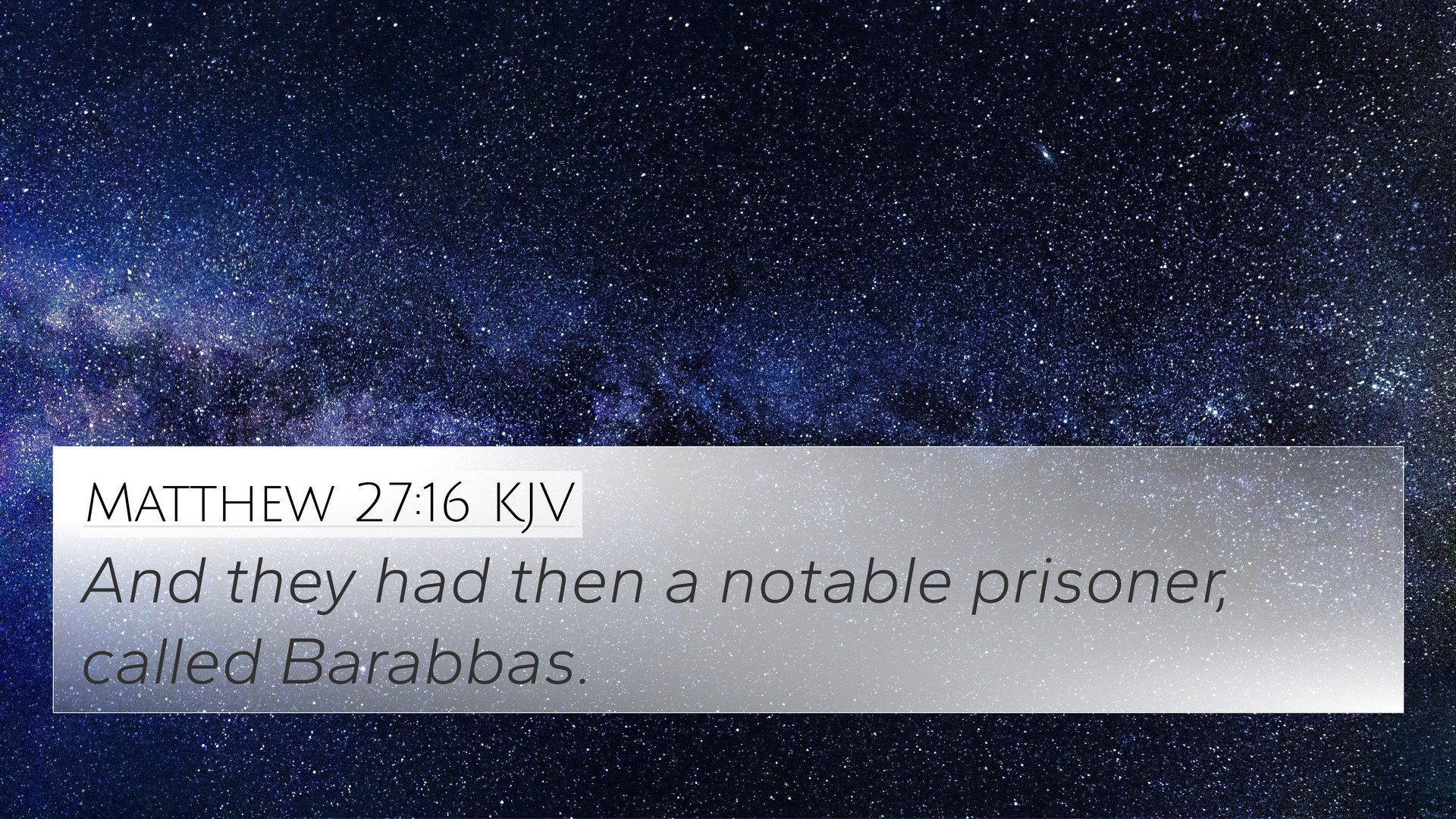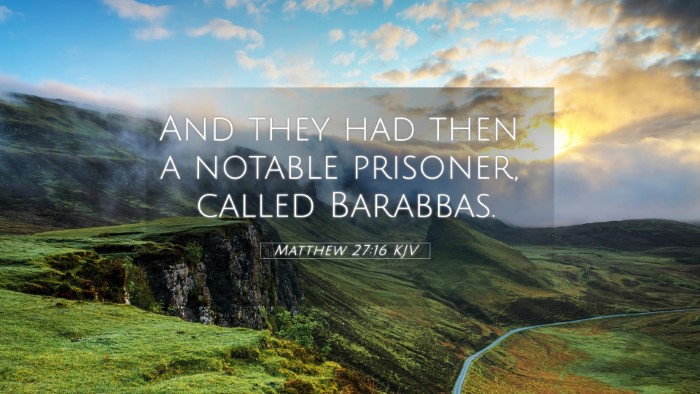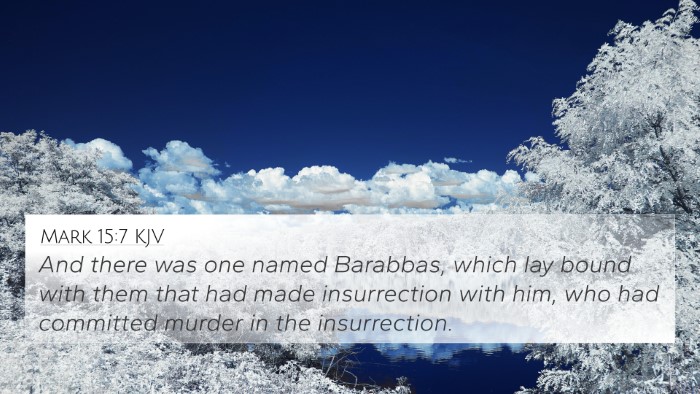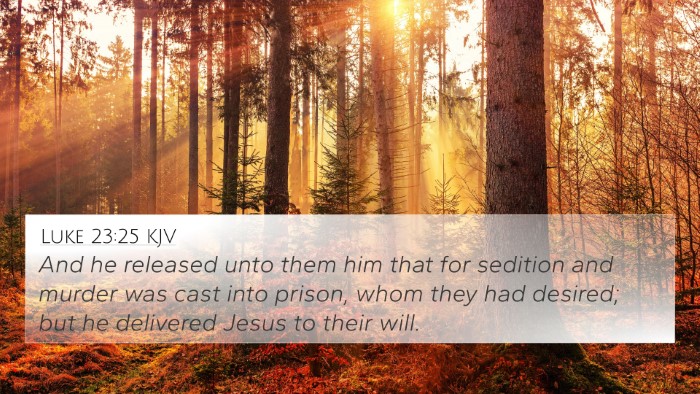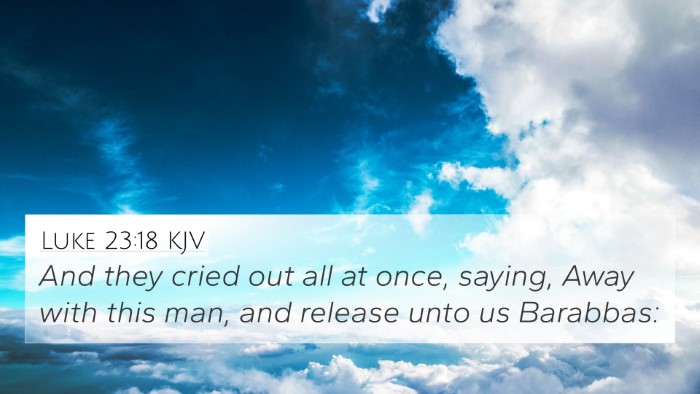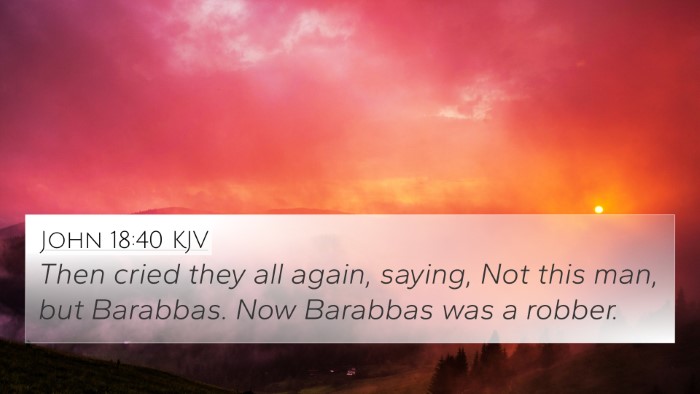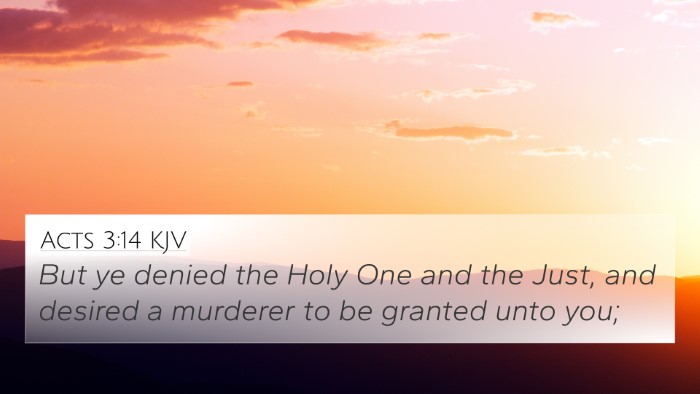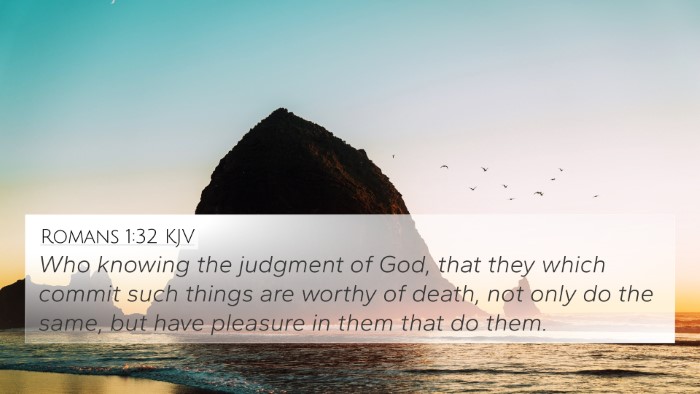Bible Verse: Matthew 27:16
“And they had then a notorious prisoner, called Barabbas.”
This verse stands out within the Passion narrative and highlights an important moment during the trial of Jesus. The mention of Barabbas, a notorious prisoner known for his crimes, serves as a foil to Jesus, who is portrayed as innocent of all accusations. This moment emphasizes themes of justice, mercy, and the crowd's choice between two figures representing opposing paths.
Interpretation and Themes
-
The Notorious Prisoner: Barabbas is depicted as a criminal, one whose reputation precedes him. Matthew Henry describes Barabbas as a type of humanity's sinful nature, suggesting that the choice the people made represents the fallen condition of man.
-
Contrast Between Jesus and Barabbas: Albert Barnes notes that the choice reflects not merely a preference for a criminal over the innocent but serves as a deeper commentary on human sinfulness and the rejection of good. The people chose Barabbas, signifying their inclination towards sin.
-
The Role of the People: The crowd's demand for Barabbas illustrates the fickleness of public opinion and its powerful sway over justice. Adam Clarke elaborates that this moment showcases the tragic reality of how societal pressures can lead to the condemnation of the innocent.
-
Foreshadowing Redemption: The story of Barabbas’s release can also be seen through the lens of redemption. In the grand narrative of the Bible, his release symbolizes humanity's freedom from sin through Christ's impending sacrifice.
Cross-References
- John 18:40 - "Then cried they all again, saying, Not this man, but Barabbas..." - Another Gospel perspective explaining the choice made by the people.
- Luke 23:18-19 - "And they cried out all at once, saying, Away with this man, and release unto us Barabbas." - Highlights the crowd's decision and Barabbas's criminal background.
- Matthew 27:17 - "Therefore when they were gathered together, Pilate said unto them, Whom will ye that I release unto you? Barabbas, or Jesus which is called Christ?" - The pivotal question posed by Pilate that leads to the choice.
- Acts 3:14 - "But ye denied the Holy One and the Just, and desired a murderer to be granted unto you." - Peter's reflection on the events, emphasizing Barabbas's nature.
- Isaiah 53:3 - "He is despised and rejected of men; a man of sorrows, and acquainted with grief..." - A prophetic reference that connects to the rejection of Jesus in favor of a sinner.
- Romans 5:8 - "But God commendeth his love toward us, in that, while we were yet sinners, Christ died for us." - A reminder of Christ's sacrificial love, akin to the choice made here.
- 1 Peter 2:24 - "Who his own self bare our sins in his own body on the tree..." - Refers to the righteousness of Jesus contrasted with Barabbas's crimes.
Connecting Biblical Themes
Matthew 27:16 serves as a reflection on several Biblical themes, including:
-
Justice and Injustice: The choice made by the people highlights a critical moment of injustice, illustrating how often societal decisions can lead to grave errors.
-
Sin and Redemption: Barabbas acts as a figure of sin; his release symbolically paves the way for the greater atonement that Jesus will fulfill.
-
Public Opinion: This scene warns of the danger in letting the majority's voice dictate moral choices, reminding believers of the importance of steadfastness to truth.
Conclusion
In summary, Matthew 27:16 encapsulates a moment rich with meaning, illustrating complex themes such as choice, condemnation, and the nature of forgiveness. By examining this verse and its connections, believers can draw insights that enrich their understanding of scripture and their own faith journey.
For further exploration of biblical connections, consider utilizing tools for Bible cross-referencing. Resources such as Bible concordances and cross-reference guides can illuminate the connections between passages, enhancing your study and understanding of the Father’s redemptive plan throughout scripture.
